When it comes to keeping your engine running smoothly, fuel additives are often marketed as a quick fix to improve performance, enhance fuel efficiency, or clean the system. While some additives may offer benefits in specific situations, many can do more harm than good. The reality is that not all engines are built to handle certain chemicals, and adding the wrong type of fuel additive could lead to long-term damage, costly repairs, and reduced performance.
In this article, we’ll explore several fuel additives that you should avoid if you want to protect your engine’s longevity. From common additives like octane boosters and ethanol to lesser-known ones like acetone and methanol, each has its risks. Understanding how these substances interact with your vehicle’s fuel system can save you from unexpected engine troubles down the road.
Contents
Octane Boosters
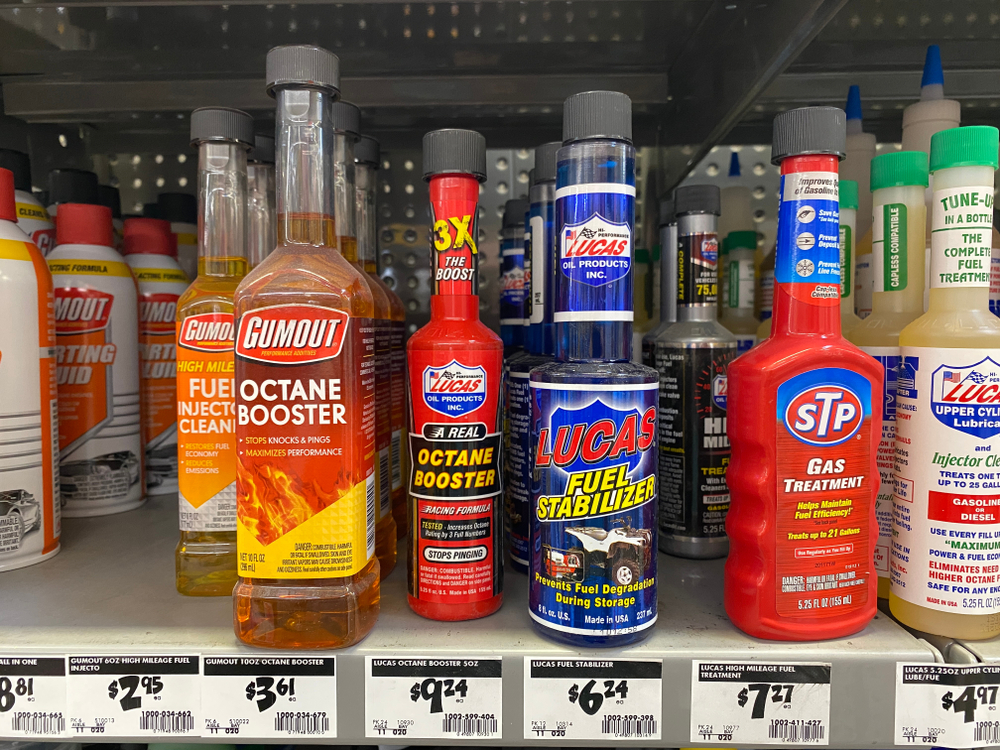
While octane boosters are designed to improve the performance of high-compression engines by increasing the fuel’s octane rating, excessive or incorrect use can harm your engine. These additives often contain harsh chemicals like MMT (methylcyclopentadienyl manganese tricarbonyl) that can damage the catalytic converter and oxygen sensors over time. Additionally, frequent use can lead to deposits forming inside the combustion chamber, reducing engine efficiency and causing misfires. Engines not designed for higher-octane fuel might suffer more harm than good from these boosters.
Ethanol
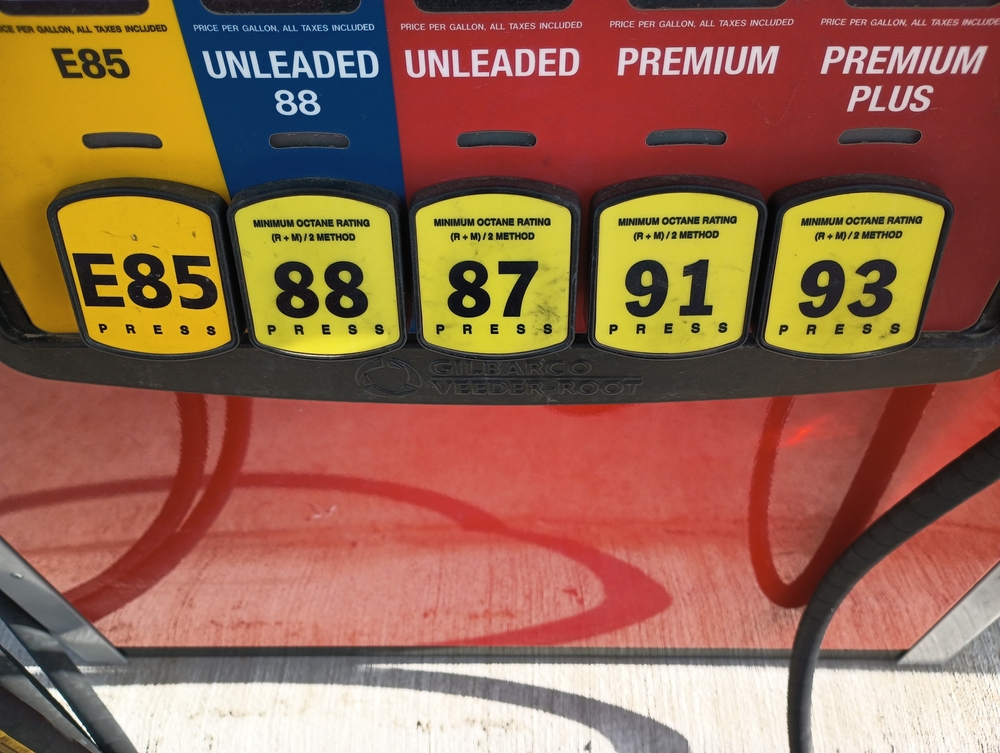
Ethanol is commonly blended with gasoline to reduce emissions, but higher ethanol concentrations, such as E15 or E85, can be detrimental to certain engines. Ethanol is hygroscopic, meaning it absorbs moisture from the air, which can lead to water accumulation in the fuel system, causing corrosion in fuel lines, injectors, and other components. It also has a drying effect on rubber and plastic parts, accelerating their wear. Many older engines or vehicles not designed for ethanol blends can suffer from performance issues or long-term damage.
Lead Additives
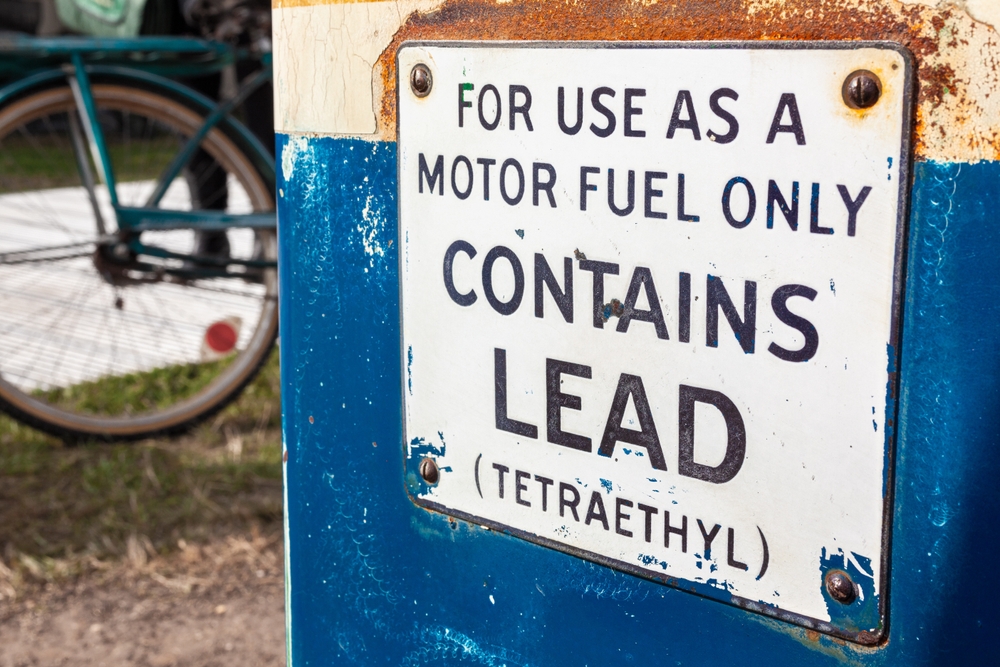
Lead additives were once common in gasoline to reduce engine knocking, but their use has been largely phased out due to environmental and health concerns. Modern engines are not designed to handle lead-based additives, and using them can clog the catalytic converter and cause severe engine damage. Lead can also deposit on spark plugs, valves, and pistons, reducing engine efficiency and causing misfires. The environmental harm caused by lead emissions further adds to the reasons why this additive is harmful.
Acetone
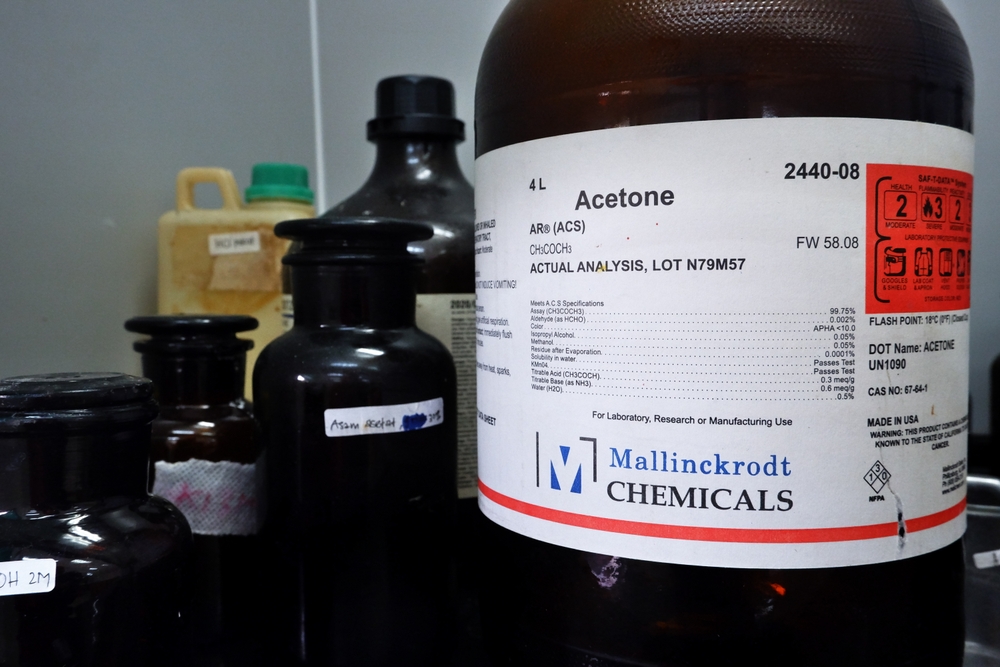
Some people believe that adding acetone to gasoline can improve fuel efficiency by enhancing the fuel’s vaporization. However, acetone is highly corrosive and can damage rubber seals, gaskets, and plastic components within the fuel system. Prolonged use can lead to leaks and compromised engine performance. Additionally, acetone’s aggressive nature can disrupt the engine’s combustion process, potentially causing misfires or incomplete fuel burns, leading to increased wear on engine parts.
Methanol
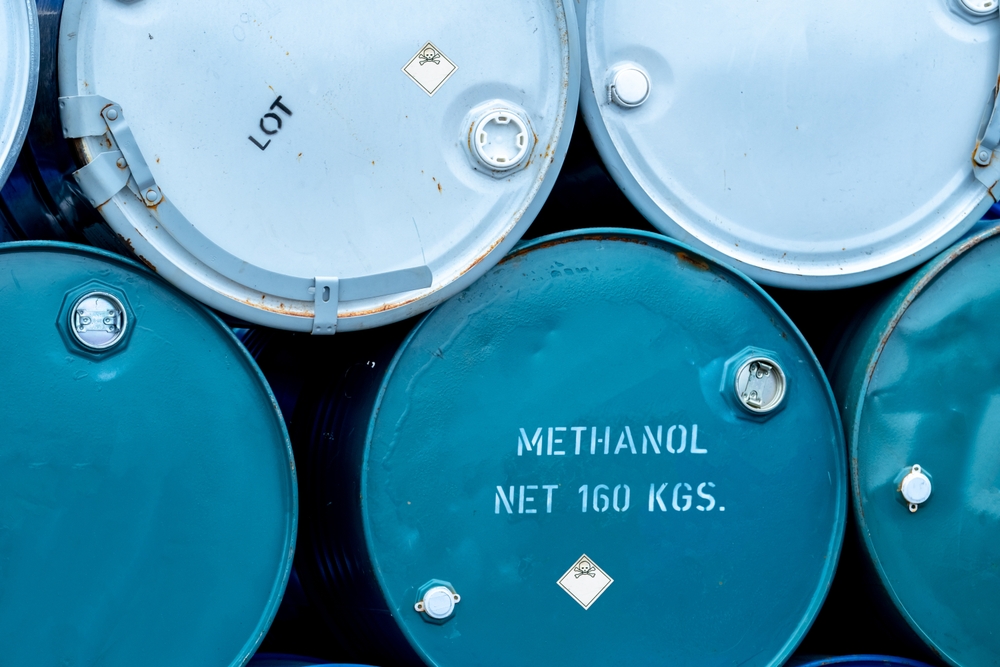
Methanol is often used in racing fuels, but it is not suitable for regular consumer vehicles. Like ethanol, methanol is hygroscopic and can attract moisture, leading to corrosion in the fuel system. Methanol is also highly corrosive to aluminum, rubber, and plastic components, which are commonly found in modern engines. Prolonged use of methanol in a standard gasoline engine can lead to component failure, reduced fuel efficiency, and potential engine damage.
Diesel Additives in Gasoline Engines

Diesel fuel additives can wreak havoc on gasoline engines. These additives are formulated to enhance diesel combustion properties, which differ significantly from gasoline. When introduced into a gasoline engine, diesel additives can cause incomplete combustion, leading to engine knocking, increased emissions, and potential damage to the spark plugs and catalytic converter. This type of additive is simply incompatible with gasoline engines and can cause long-term engine degradation.
Nitromethane
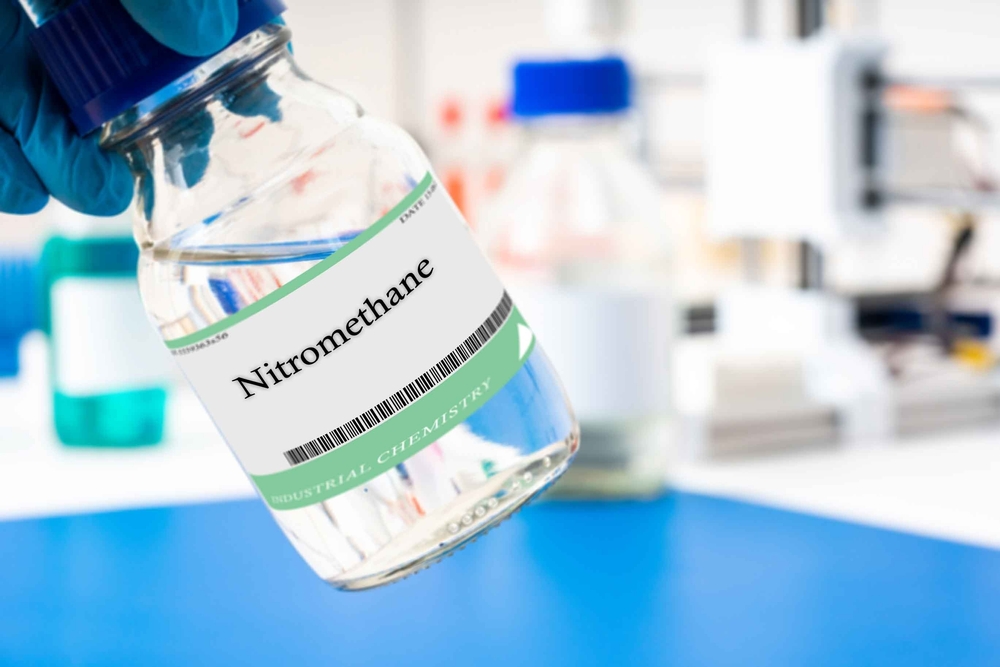
Popular in drag racing, nitromethane is an additive that increases the energy content of the fuel, providing a significant power boost. However, its use in consumer vehicles is highly detrimental. Nitromethane can cause extreme heat and pressure within the engine, leading to rapid wear, melted components, and catastrophic failure. In engines not designed for such high-powered fuel, using nitromethane can result in damage to pistons, valves, and even the engine block.
Chlorinated Additives
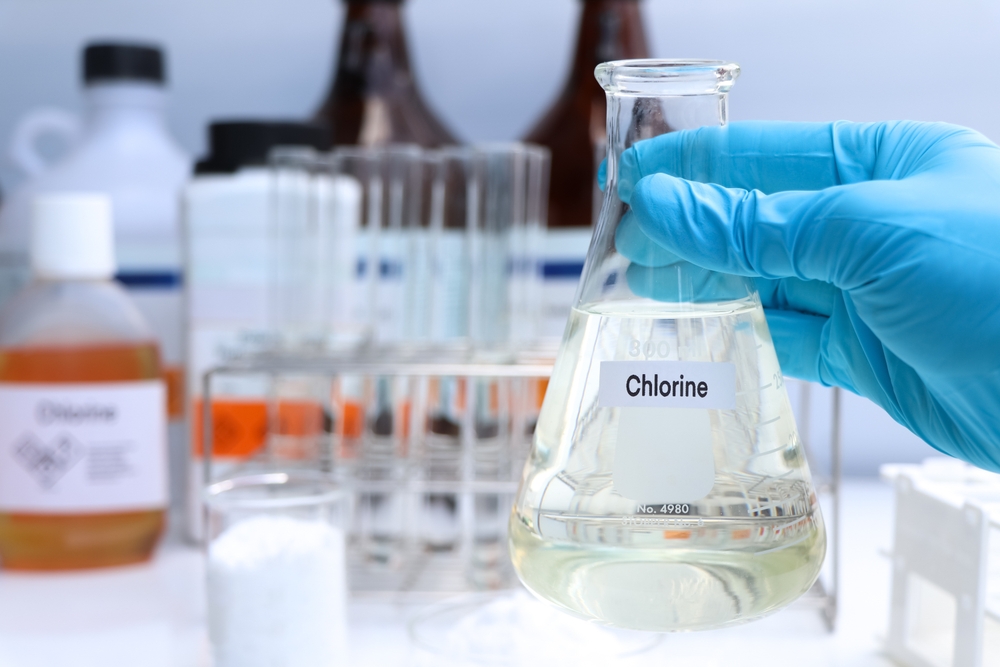
Chlorinated compounds, sometimes found in performance fuel additives, can increase the octane rating of gasoline but pose a severe risk to your engine. These additives produce corrosive byproducts, which can lead to the deterioration of engine parts such as the exhaust valves, piston rings, and catalytic converter. Additionally, chlorinated additives can cause higher emissions of harmful substances like hydrochloric acid, further damaging the engine and contributing to environmental harm.
Sulfur Additives

Sulfur was historically present in gasoline to improve lubrication, but its negative impact on emissions and engine components outweighs the benefits. Modern engines, especially those equipped with catalytic converters, are highly sensitive to sulfur content. Sulfur can clog the catalytic converter, reduce engine efficiency, and increase harmful emissions. Using additives with sulfur can also lead to corrosion of metal components in the fuel system, resulting in long-term damage.
Xylene and Toluene
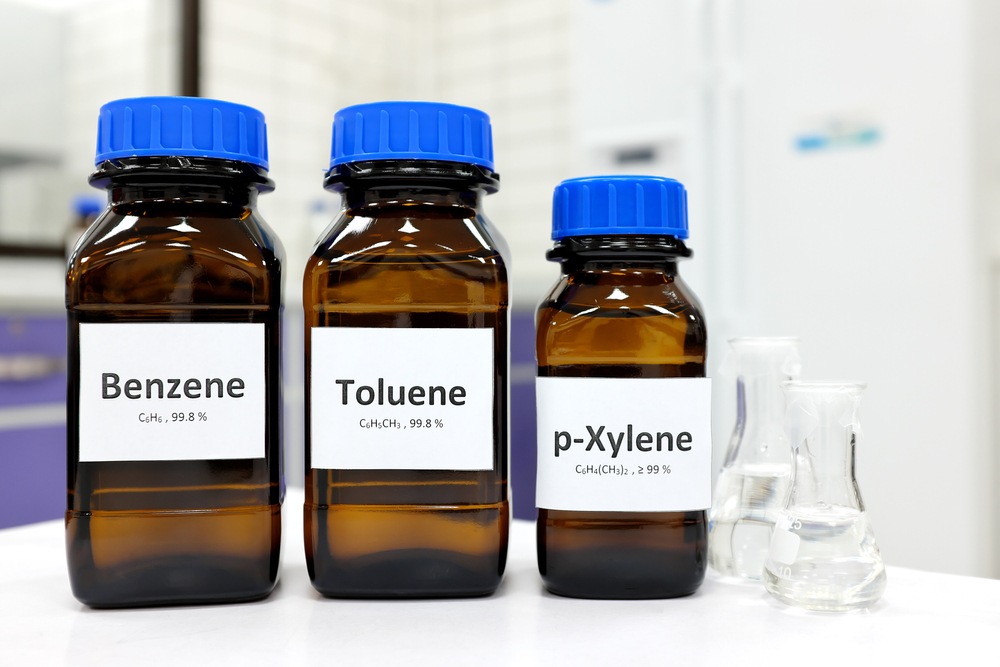
Xylene and toluene are solvents that some people use as octane boosters or fuel enhancers. While they do increase the octane rating, they can be harmful when used excessively. These chemicals are highly aggressive, leading to the deterioration of rubber and plastic components in the fuel system. They can also cause carbon buildup in the combustion chamber, reducing engine performance and increasing the risk of engine knock and misfires. Moreover, they are volatile and can create safety hazards when handled improperly.
This article originally appeared on MyCarMakesNoise.
More from MyCarMakesNoise
10 Timeless Boats That Remain Favorites

In the ever-evolving world of boating, certain vessels stand the test of time, becoming enduring favorites among enthusiasts and casual sailors alike. These timeless boats, known for their exceptional craftsmanship, innovative design, and lasting value, continue to captivate and inspire generations of boaters. Read More.
11 Classic RVs That Are Ready for a Revival

Exploring the world of vintage RVs reveals a rich tapestry of history, design, and enduring appeal. These vehicles, crafted with an eye for both function and aesthetics, represent a golden age of road travel, characterized by a sense of freedom and adventure that is as compelling today as it was decades ago. Read More.
13 Custom Motorcycle Mistakes That Could Wreck Your Build

Customizing a motorcycle is a thrilling process that allows riders to express their style and enhance performance. However, it’s not without its pitfalls. Read More.














